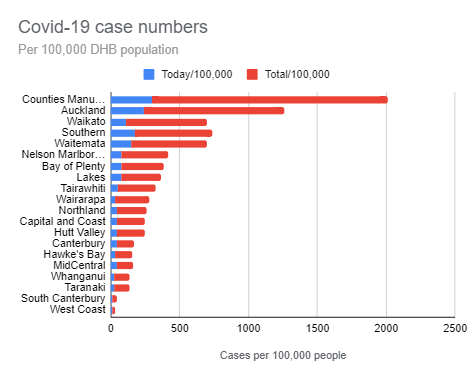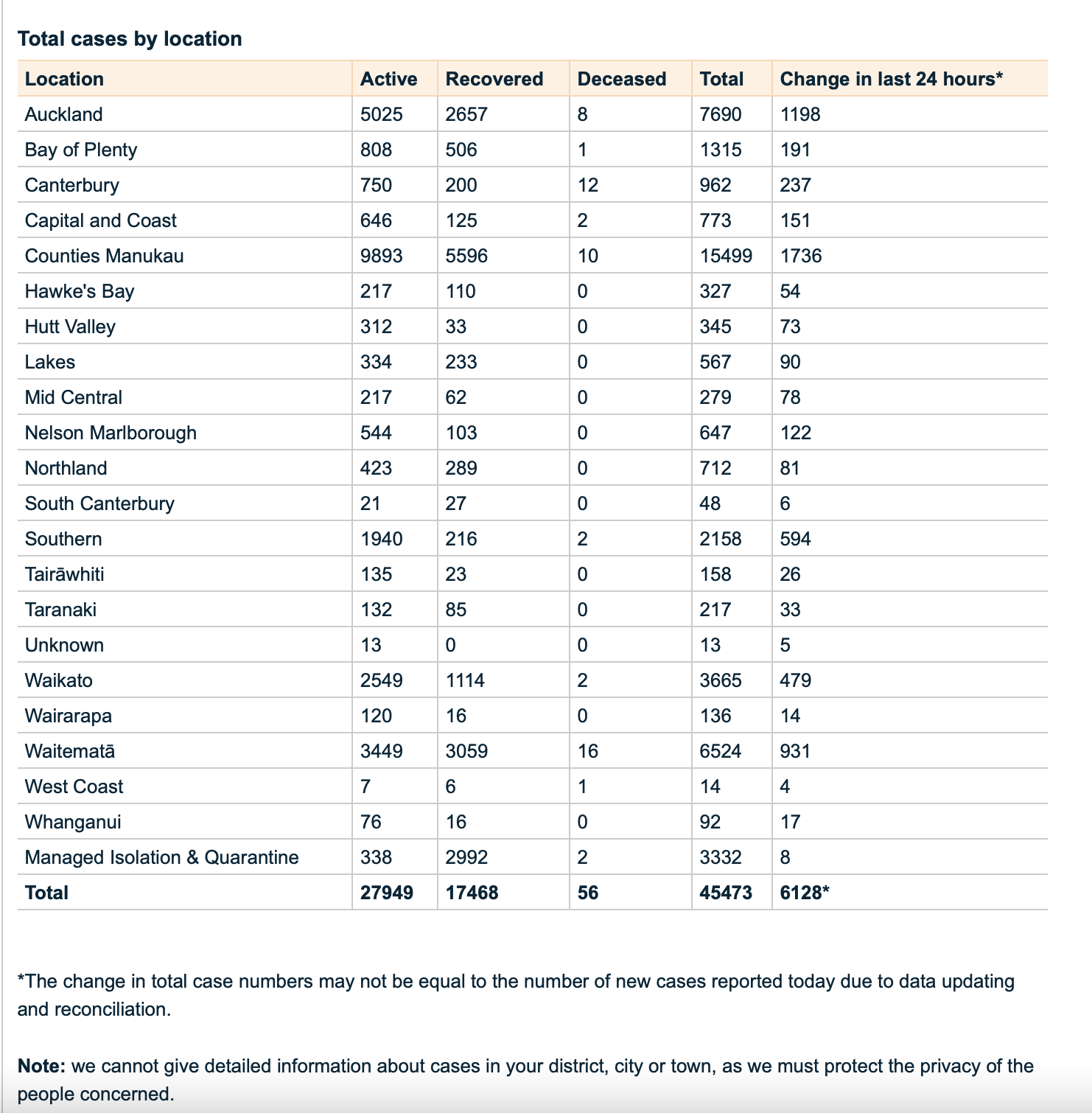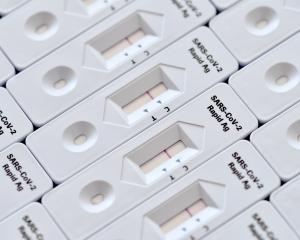There are 595 new cases of Covid-19 to report in the South, as the country prepares to enter phase 3 of the response to the highly transmissible variant Omicron from 11.59pm today.
In a statement this afternoon, the Ministry of Health reported test results according to PCR (polymerase chain reaction) and Rapid Antigen Tests (RATs).
Nationally, there were 6137 new community cases, which include 3526 PCR tests and 2611 Rapid Antigen Tests.
In the Southern District Health Board area there were 305 PRC tests reported today, and 290 RATs. There are 1940 active cases of the virus in the region.
The Southern DHB area had the third highest rate of Covid-19 per head of population today, with 172 cases per 100,000 people, behind Counties Manukau DHB with 300 cases per 100,000 and Auckland DHB with 242 cases per 100,000.

Of the 1940 cases in the South the SDHB was able to provide a breakdown of where 1740 cases were by territorial authority.
It said there are 22 active cases in Central Otago, 6 in Clutha, 955 in Dunedin, 11 in Gore, 55 in Invercargill, 364 in Queenstown-Lakes, 11 in Southland and 26 in Waitaki.
There were 290 that were positive RATs, but the SDHB did not have geographic locations for them.
The Ministry said the Omicron public health response during phase two and three operates on more devolved model to ensure health resources are focused on those who need it most.
"It is very important to the overall response that people self-report positive results for RATs, so we understand the size of the outbreak."
Location of new community cases (PCR): Northland (56), Auckland (1,979), Waikato (314), Bay of Plenty (116), Lakes (75), Hawke’s Bay (30), MidCentral (69), Whanganui (13), Taranaki (30), Tairāwhiti (26), Wairarapa (11), Capital and Coast (120), Hutt Valley (68), Nelson Marlborough (112), Canterbury (194), South Canterbury (3), Southern (305), West Coast (4).
Location of new community cases (RAT): Northland (24), Auckland (1,900), Waikato (163), Bay of Plenty (75), Lakes (16), Hawke’s Bay (30), MidCentral (8), Whanganui (4), Taranaki (4), Tairāwhiti (0), Wairarapa (4), Capital and Coast (44), Hutt Valley (5), Nelson Marlborough (11), Canterbury (43), South Canterbury (3), Southern (290), West Coast (0).
There are 205 people are in hospitals throughout New Zealand and two in ICU or a high dependency unit.
One person with Covid at Middlemore Hospital in Auckland has died, the 57th death associated with the virus. The family has requested that no further details be released.
There are also eight Covid cases reported at the border today.

Increasing numbers of cases and hospitalisations are another reminder that vaccination is the best defence against Covid and its variants, the Ministry said.
"There is growing evidence that three doses of Pfizer is protective against infection and symptomatic infection for Omicron. We are strongly encouraging people to get a booster dose if it has been more than three months since their second dose."
There were 24,632 booster doses administered across New Zealand yesterday and overall, about 68.2% of the eligible population have received a booster dose.
In the Southern DHB: first dose (97.8%); second dose (96.5%); boosted (73%).
* The Ministry of Health’s daily reported cases may differ slightly from those reported at a DHB or local public health unit level. This is because of different reporting cut off times and the assignment of cases between regions, for example when a case is tested outside their usual region of residence. Total numbers will always be the formal daily case tally as reported to the WHO.
Covid-19 by location

NZ moving to phase 3
The Government initially set out the three phases of its Omicron response in late January, signalling an increasing reliance on automated systems and home isolation as growing case numbers threaten to overwhelm contact tracing, testing and managed isolation and quarantine facilities.
It was initially suggested New Zealand may never reach phase three, expected to trigger when the country was getting about 5000 cases a day, but with numbers at that level from today, Covid-19 Response Minister Chris Hipkins confirmed the move.
The main points are:
- Only confirmed cases and their household contacts required to isolate
- All other contacts now asked to monitor symptoms but do not have to isolate
- Rapid Antigen Tests (RATs) will become the primary form of testing in the community with availability from thousands of sites around the country including pharmacies and GP practices over coming days
- Approved RATs able to be sold to the public through retail outlets from March
"Our priorities now shift to isolating those with Covid-19 and their household contacts to reduce the spread, while at the same time supporting supply chains and essential services to continue to operate," Hipkins said.
While Covid cases are rising faster in the Southern DHB area than many other places, WellSouth medical director Dr Carol Atmore said residents and students should be assured the majority of people who get the virus will be able to safely self-manage at home and that health care and support are available when needed.
“Most people, if they are fully vaccinated and otherwise healthy, will be able to self-manage at home,” Dr Atmore says. “From what we have seen elsewhere, in Auckland and overseas, in people who are fully vaccinated who catch Omicron, it presents like a cold or mild flu and we’ve been living with cold and flu all our lives.”
- ODT Online
Advertisement













